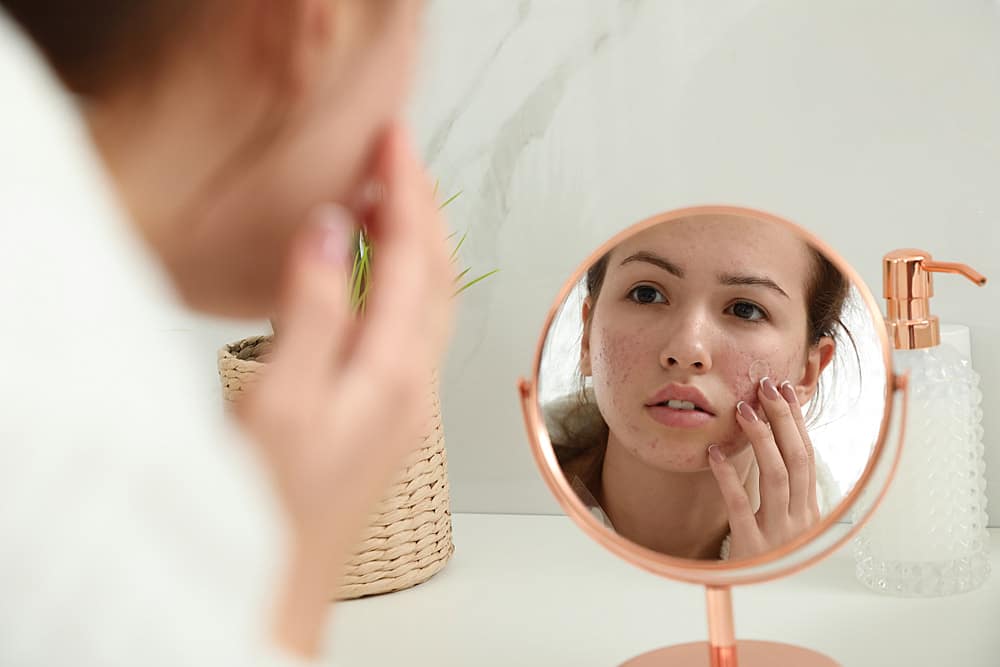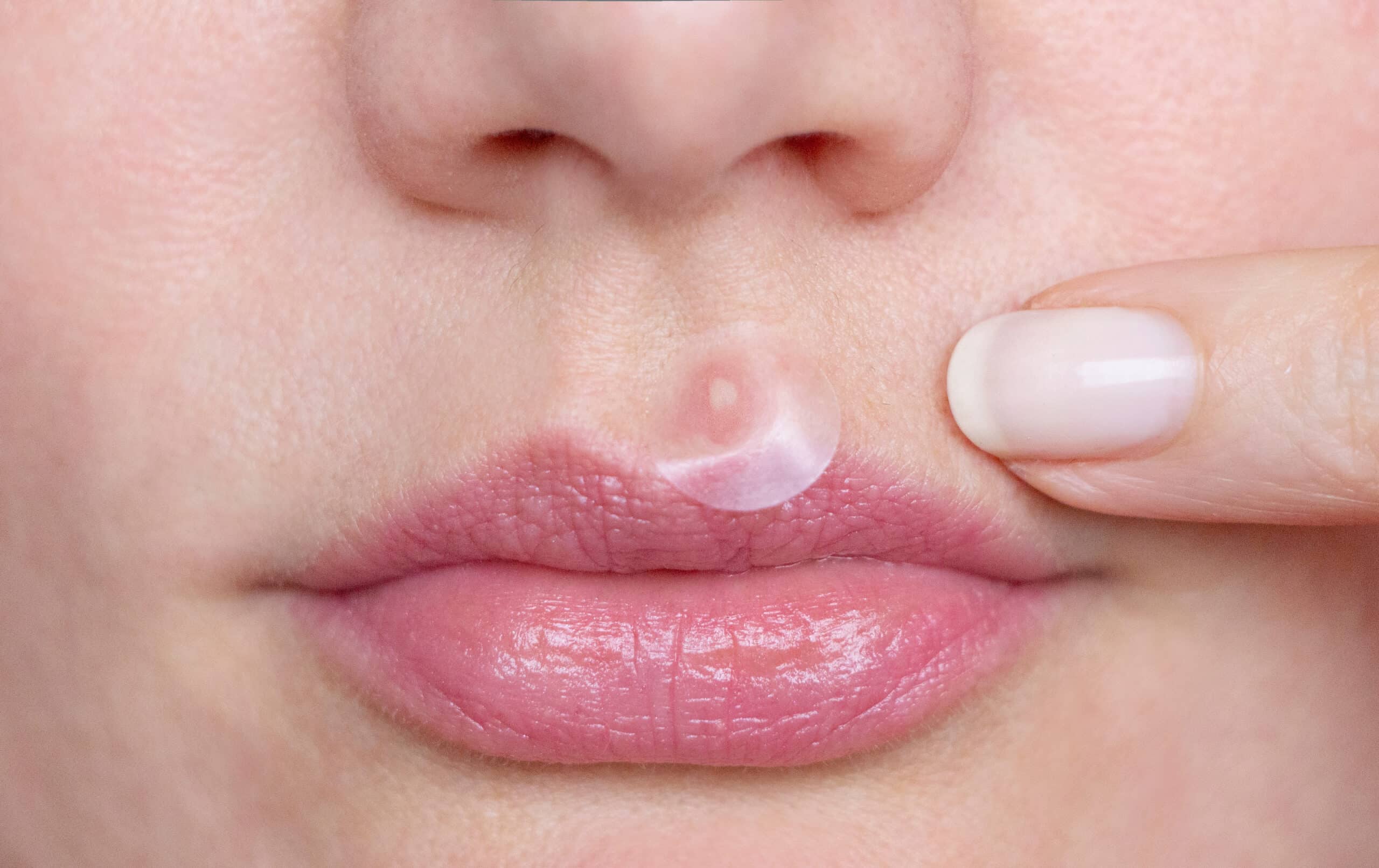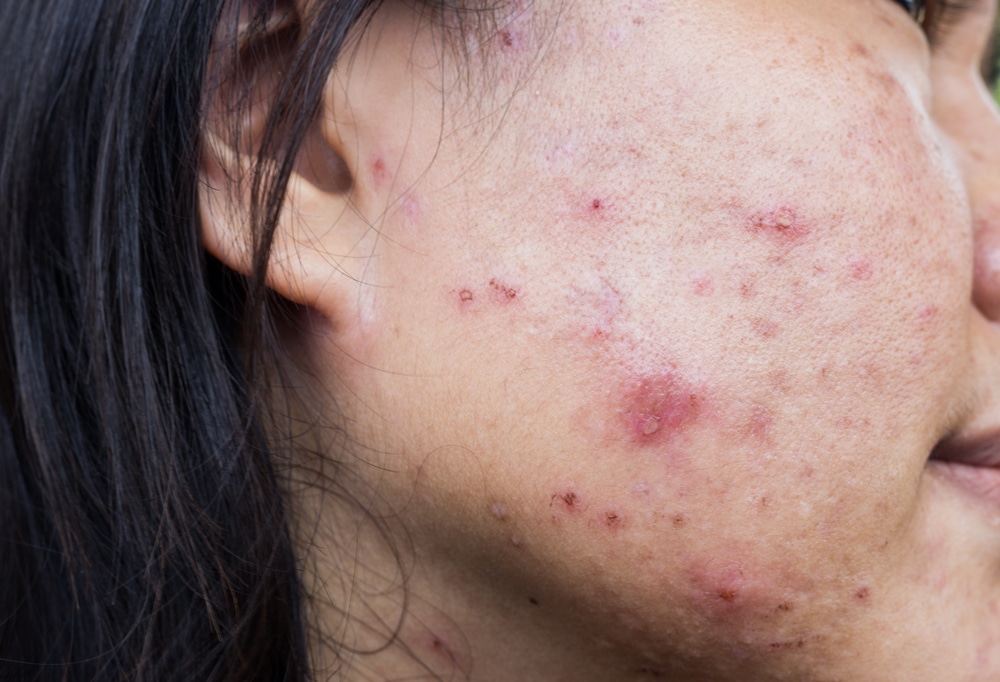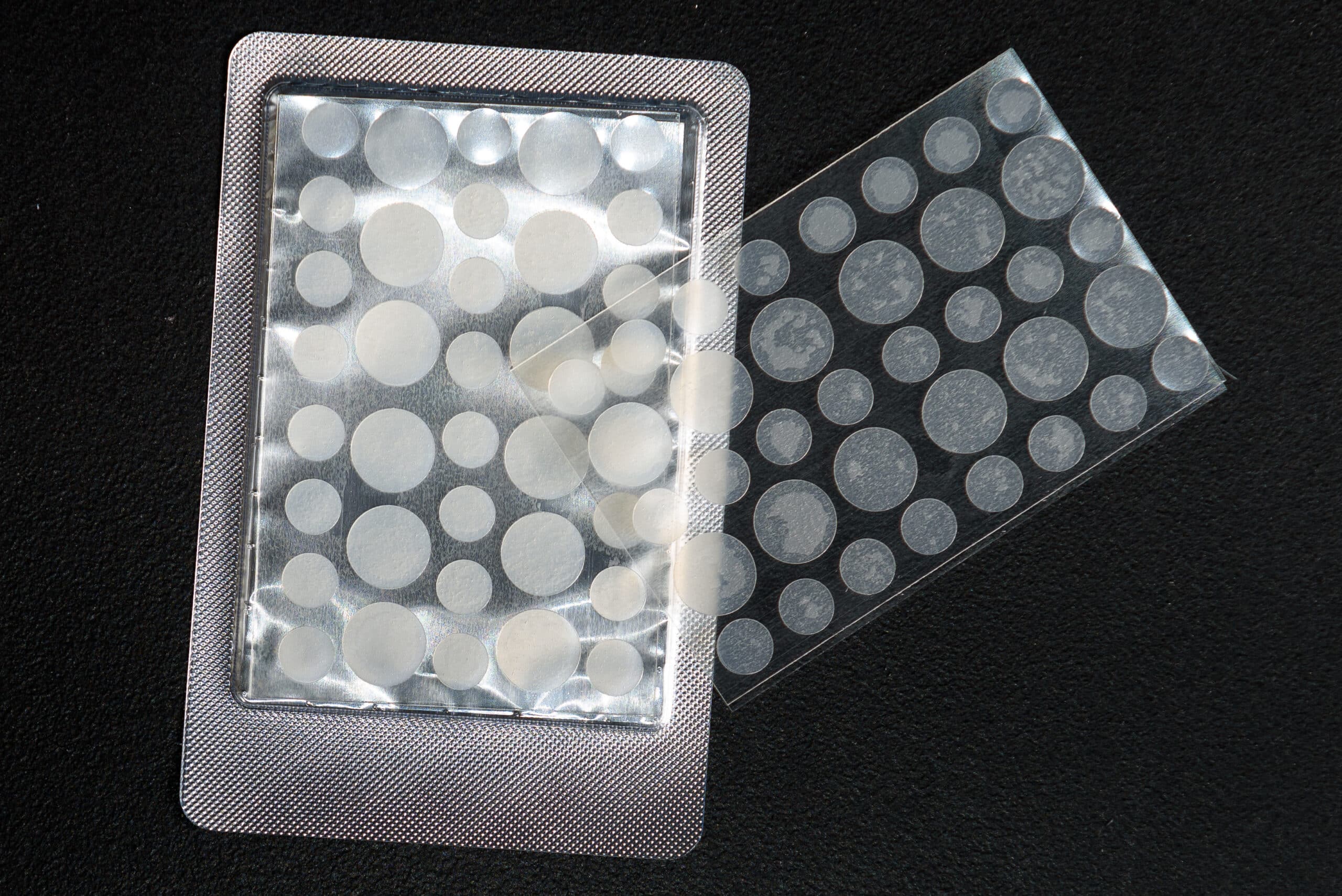
Do Acne Patches Cause Or Treat Acne Scars?
- September 12, 2022


Acne is a common skin condition that affects millions of people worldwide. While some individuals may experience only occasional breakouts, others may struggle with persistent and severe acne that can lead to scarring. Acne scars are a common concern for individuals who have experienced acne, and they can impact not only the appearance of the skin but also self-esteem and quality of life.
But, with so many different products available to treat acne scars, it can be difficult to determine what works best. One of the latest treatment options for acne scars is the use of acne patches. But how effective is it, and could using acne patches during an active acne breakout lead to more scarring? This article will explore the question of whether acne patches cause or treat acne scars.
Acne patches are small, adhesive bandages that are applied to the skin to help treat pimples and other breakouts. They are designed to provide a barrier between the skin and the environment, reducing the risk of infection and promoting healing. They may also contain active ingredients, such as salicylic acid, that can help to unclog pores and reduce inflammation.
Also Read: All You Need To Know About Acne Scar Removal Treatment in Singapore
However, with so many different types of acne patches available, it can be difficult to determine which ones are best for treating acne scars. Acne breakouts have a cycle of inflammation, resolution and scarring. Therefore, using the right patch for the right situation is vital. For example, some patches are designed to treat active breakouts, while others are marketed specifically for acne scarring. Using the wrong patch can actually cause a more serious breakout, or worsen the scarring that occurs after the inflammation stage.
Let’s examine the available evidence on the effectiveness of acne patches in treating acne scars,so that you have a better understanding of acne patches are their relation to acne scars, and what you should consider when using acne patches.

Acne patches are a popular and convenient treatment option for individuals who suffer from acne breakouts and scars. They are small, adhesive bandages that are applied to the skin to provide a barrier between the skin and the environment, reducing the risk of infection and promoting healing. They may also contain active ingredients that can help to unclog pores and reduce inflammation.
There are several different types of acne patches available, including:
It is important to note that not all acne patches are created equal, and it is important to choose a product that is suitable for your skin type and specific needs. Some patches may contain ingredients that can irritate the skin or cause an allergic reaction, so it is important to patch test a product before using it on a larger area of the skin.
In terms of effectiveness, there is some evidence to suggest that acne patches can help to improve the appearance of scars over time. For example, silicone patches have been shown to reduce the appearance of scars by flattening raised areas and promoting skin healing.
However, it is important to remember that acne patches are not a cure for acne scars, and they may not work for everyone. Individuals who suffer from severe or persistent acne scars may benefit from other treatment options, such as laser therapy, chemical peels, or RF microneedling in Singapore. An experienced aesthetic doctor can help to determine the best treatment option for you based on your specific needs and goals.

Acne patches are often used to treat active acne breakouts and to reduce the risk of infection and scarring. However, the question of whether using acne patches can actually lead to the development of acne scars is a complex one.
On one hand, acne patches can help to reduce the risk of scarring by promoting healing and reducing the risk of infection. For example, hydrocolloid patches contain a gel-like material that can absorb excess oil and impurities from the skin, reducing the risk of breakouts and promoting overall skin health. Similarly, silicone patches can provide a protective barrier over the skin, reducing the risk of scarring by flattening raised areas and promoting skin healing.
On the other hand, it is also possible that using acne patches can actually contribute to the development of acne scars. For example, if a patch is applied too tightly or left on for too long, it can cause friction and irritation to the skin, leading to scarring. Similarly, if a patch is not properly cleaned or removed, it can trap bacteria and oil on the skin, leading to breakouts and potentially scarring.
Also Read: All You Need to Know About RF Gold Microneedling
It is also important to note that not all acne patches are created equal, and some may contain ingredients that can irritate the skin or cause an allergic reaction. For example, some patches contain salicylic acid, which can be drying and irritating to the skin. Similarly, some patches contain tea tree oil, which can cause an allergic reaction in some individuals.
In order to reduce the risk of scarring while using acne patches, it is important to choose a product that is suitable for your skin type and specific needs. Additionally, it is important to follow the instructions for use carefully, and to avoid applying the patch too tightly or leaving it on for too long. If you are concerned about the appearance of your scars, it is best to speak with an aesthetic doctor who can help you determine the best treatment option for you.
In short, using acne patches can both help to reduce the risk of scarring and contribute to the development of acne scars. The effectiveness of acne patches in reducing scarring will depend on several factors, including the type of patch, the ingredients it contains, and the way it is used. To reduce the risk of scarring and to ensure the best possible outcome, it is important to choose a product that is suitable for your skin type and specific needs, and to follow the instructions for use carefully.
Acne patches are a popular and convenient way to treat active breakouts and avoid scarring, but many people wonder if they can actually help with acne scars. While acne patches can certainly play a role in preventing scarring, it’s important to understand their limitations when it comes to treating existing scars.
First, let’s talk about the benefits of using acne patches. Hydrocolloid and silicone patches are two popular types that can be incredibly helpful in reducing the risk of scarring. Hydrocolloid patches contain a gel-like material that soaks up excess oil and impurities from the skin, keeping breakouts at bay and promoting healthy skin. Silicone patches, on the other hand, form a protective barrier over the skin, keeping raised areas flat and helping the skin heal more quickly.
However, it’s important to note that acne patches can’t undo damage that’s already been done. To treat existing scars, you’ll need a more comprehensive approach. A licensed healthcare provider can help you determine the best course of action, but some options to consider include laser treatments, microneedling, chemical peels, and topical creams with ingredients like retinoids and glycolic acid.
It’s also important to understand that different types of scars require different types of treatment. For example, shallow, superficial scars might respond well to chemical peels or topical treatments, while deeper, more severe scars might require a combination of treatments or even surgery.
So, to answer the question, “Do acne patches work for acne scars?” the answer is both yes and no. Yes, acne patches can help prevent scarring from future breakouts, but they can’t treat existing scars on their own. If you’re looking to treat existing scars, it’s best to talk to an aesthetic doctor and come up with a comprehensive plan that’s right for you and your skin.
Clearly, acne patches can be a great tool for preventing scarring, but they shouldn’t be relied upon to treat existing scars. To get the best results, it’s best to consider a more comprehensive approach, like laser treatments, microneedling, chemical peels, or topical creams. And remember, you’re not alone in this journey. A healthcare provider is always there to help and guide you.
Acne patches are a simple and effective way to treat breakouts, but it’s important to use them correctly for the best results. Here’s what you need to know to get the most out of your acne patches:
By following these simple steps, you can effectively use acne patches to help treat your breakouts and reduce the risk of scarring. With regular use, you should start to see improvements in your skin’s appearance, clarity, and texture
When it comes to dealing with acne and acne scarring, professionalism and experience are required for safe and effective treatment. Therefore, patients who wish to receive lasting treatment for acne or the scars it produces should undergo a detailed examination by a qualified doctor, who will then arrive at a suitable treatment option based on the patient’s skin type, skin condition and budget.
If you are tired of seeing acne and its resultant scars on your face in the mirror every morning, SL Aesthetic Clinic can provide you with the necessary diagnosis and treatment to alleviate the condition. Call us at 62353246, or WhatsApp us at 98507112.
Like what you read? Share them!